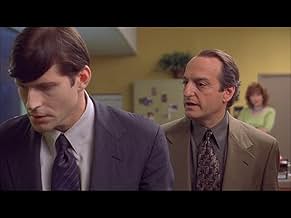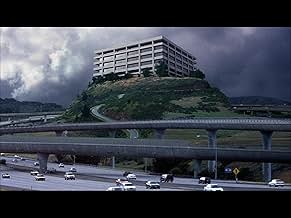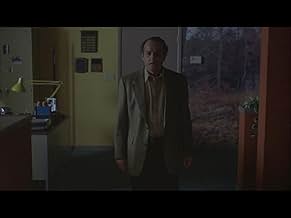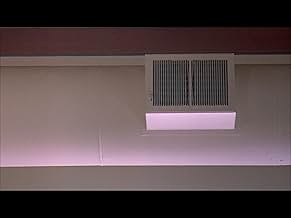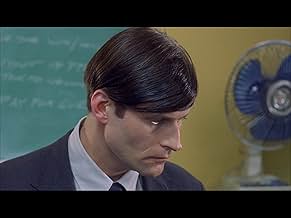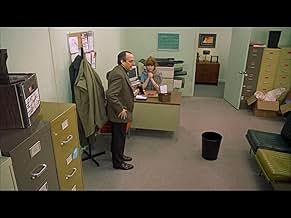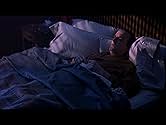AVALIAÇÃO DA IMDb
6,4/10
2,3 mil
SUA AVALIAÇÃO
Adicionar um enredo no seu idiomaA clueless boss has no idea what to do with his mundane office worker whose refusal of duties only gets worse each passing minute.A clueless boss has no idea what to do with his mundane office worker whose refusal of duties only gets worse each passing minute.A clueless boss has no idea what to do with his mundane office worker whose refusal of duties only gets worse each passing minute.
- Direção
- Roteiristas
- Artistas
- Prêmios
- 1 indicação no total
Stu Klitsner
- Professor Bum
- (as Stuart Klitsner)
Catherine DiNapoli
- Rocky's Girlfriend
- (as Catherine di Napoli)
- Direção
- Roteiristas
- Elenco e equipe completos
- Produção, bilheteria e muito mais no IMDbPro
Avaliações em destaque
Herman Melville's short story "Bartleby the Scrivener" gets a slightly surreal update in this offbeat comedy drama. The manager (David Paymer) of the city records department in a mid-sized California community decides that his staff of three - flirty chatterbox Vivian (Glenne Headly), sloppy Vietnam vet Ernie (Maury Chaykin), and slick-suited, Don Juan wannabe Rocky (Joe Piscopo) - could use some help, so he places an ad looking for a new employee. The boss ends up hiring the one and only applicant who wants the position, a quiet, pale young man named Bartleby (Crispin Glover).
At first, Bartleby is a model of efficiency, but before long he loses enthusiasm for his job, much to the annoyance of his co-workers, and soon he's spending his days staring at an air conditioning vent. The Boss asks Bartleby to get back to work, but Bartleby's repeated reply to such requests is, "I prefer not to," and the Boss sees little recourse but to fire him.
However, Bartleby refuses to leave his desk, and it soon becomes obvious that Bartleby has not only stopped doing his work - he's stopped going home and has moved into the office. Bartleby was the first feature film for producer/director Parker. He also wrote the screenplay, in collaboration with Catherine Di Napoli.
There is really not enough material in Melville's story to warrant a feature length film. When "Bartleby" sticks to the text of the story it is interesting and fairly funny, but Parker is forced to add a lot of filler which is simply not very good. Worth a look, but in the end, a bit weak.
At first, Bartleby is a model of efficiency, but before long he loses enthusiasm for his job, much to the annoyance of his co-workers, and soon he's spending his days staring at an air conditioning vent. The Boss asks Bartleby to get back to work, but Bartleby's repeated reply to such requests is, "I prefer not to," and the Boss sees little recourse but to fire him.
However, Bartleby refuses to leave his desk, and it soon becomes obvious that Bartleby has not only stopped doing his work - he's stopped going home and has moved into the office. Bartleby was the first feature film for producer/director Parker. He also wrote the screenplay, in collaboration with Catherine Di Napoli.
There is really not enough material in Melville's story to warrant a feature length film. When "Bartleby" sticks to the text of the story it is interesting and fairly funny, but Parker is forced to add a lot of filler which is simply not very good. Worth a look, but in the end, a bit weak.
My first reaction to "Bartleby" is that this movie is much like a previous Crispin Glover effort, "Rubin and Ed" about a strange, directionless man with little background, who plods his way through life carelessly. Some of the awkward moments and surreal dialogue and movements within Bartleby seem to be forced, trying to hard, to capture a campy feel. The film doesn't quite reach a campy status though because of this. Although Glover captures his quirky behavior perfectly, from staring at the air vent for hours, to endlessly saying "I prefer not to.." to every work request, and the dynamics of the working relationship with his boss are interesting at times. Joe Piscopo and Maury Chaykin have some strange roles as co-workers who are up to no good... how these guys stay employed are a mystery.
Bartleby has two major problems. One is, it just gets boring. A good slow movie can do and say a lot, but Bartleby just seems to be obsessed more with how weird it can be, how far it can push the surrealism of its cast and the corporate buildings on the hills. Another thing is, why does Bartleby's boss take such an interest in him? What is the motivation? Perhaps this is best explained in Herman Melville's book, from which this movie is based. For a Crispin Glover fan, this is even barely worth watching.
Bartleby has two major problems. One is, it just gets boring. A good slow movie can do and say a lot, but Bartleby just seems to be obsessed more with how weird it can be, how far it can push the surrealism of its cast and the corporate buildings on the hills. Another thing is, why does Bartleby's boss take such an interest in him? What is the motivation? Perhaps this is best explained in Herman Melville's book, from which this movie is based. For a Crispin Glover fan, this is even barely worth watching.
The head of a public records office advertises for a new employee. Only one person responds--Bartleby, a former postal worker who at first files like a demon then lapses into apathy. Bartleby stands all day looking at an air vent in the ceiling, responding to every request from his boss and coworkers with, "I would prefer not to." Eventually the boss retaliates with passive-aggressive acts aimed at getting rid of the man. Till the very end, however, Bartleby remains an enigma, a human cipher who refuses to give up his secrets.
Hardly an engaging story premise? That's what I thought when I trudged through Herman Melville's mid-nineteenth century story "Bartleby the Scrivener" in college lit class. Sure, the story has an important theme and some interesting symbolism, but it's also dull, dull, dull. However, director Jonathan Parker has taken the best sort of revenge on this canonical work of American literature; he's turned it into a zany, low-budget, laugh fest--getting across many of the essential ideas while also entertaining his audience. Parker has approached the sort of exaggerated, stale, depressing office atmosphere seen at the beginning of "Joe Versus the Volcano" and turned it inside out, covering it with a colorful, kitschy facade to inflate the absurdity of modern information mills.
Essential to the success of the film is the fine ensemble cast. Crispin Glover deserves more lead roles, and though with Bartleby he does spend most of his time immobile and silent, perhaps no other actor can accomplish more with simple posture, well-manipulated expressions, and quirky movement. Glenne Headly is a scream in her exaggerated seduction attempts aimed at Seymour Cassel. Joe Piscopo is also in fine form as the office macho man, though he has aged dramatically since we saw him last in, what--"Wise Guys"? Maury Chaykin gives the overweight and nerve-racked Ernie a comic flair, playing with his desktop windup toys only to flinch every time they jump, and pulling off an impressive physical comedy scene involving a sandwich, a photocopier, and a watercooler. Finally, David Paymer as "The Boss" provides a solid focus for the film with his adaptive performance of a complex character.
Hardly an engaging story premise? That's what I thought when I trudged through Herman Melville's mid-nineteenth century story "Bartleby the Scrivener" in college lit class. Sure, the story has an important theme and some interesting symbolism, but it's also dull, dull, dull. However, director Jonathan Parker has taken the best sort of revenge on this canonical work of American literature; he's turned it into a zany, low-budget, laugh fest--getting across many of the essential ideas while also entertaining his audience. Parker has approached the sort of exaggerated, stale, depressing office atmosphere seen at the beginning of "Joe Versus the Volcano" and turned it inside out, covering it with a colorful, kitschy facade to inflate the absurdity of modern information mills.
Essential to the success of the film is the fine ensemble cast. Crispin Glover deserves more lead roles, and though with Bartleby he does spend most of his time immobile and silent, perhaps no other actor can accomplish more with simple posture, well-manipulated expressions, and quirky movement. Glenne Headly is a scream in her exaggerated seduction attempts aimed at Seymour Cassel. Joe Piscopo is also in fine form as the office macho man, though he has aged dramatically since we saw him last in, what--"Wise Guys"? Maury Chaykin gives the overweight and nerve-racked Ernie a comic flair, playing with his desktop windup toys only to flinch every time they jump, and pulling off an impressive physical comedy scene involving a sandwich, a photocopier, and a watercooler. Finally, David Paymer as "The Boss" provides a solid focus for the film with his adaptive performance of a complex character.
Don't know if Melville would even recognize his marvelous short story as translated into this film, or even if he'd approve...although I think he might...because the spirit of the original is here.
The satire of office shenanigans as presented by Jonathan Parker brings humor to this rather sad tale of a man determined to bring his intransigent self to the workplace and even to life itself... in the extreme. The overall effect is humane and even when the laughter comes we know something poignant is going on. David Paymer is superb as the frustrated, distraught but empathetic boss who tries to get Bartleby to be a responsive, reasonable worker/person, to no avail. Crispin Glover is a rather ghostly looking Bartleby, in a performance that demands withholding, a difficult task, but one he meets quite well.
This is good entertainment and food for thought...not often the case in movies these days.
The satire of office shenanigans as presented by Jonathan Parker brings humor to this rather sad tale of a man determined to bring his intransigent self to the workplace and even to life itself... in the extreme. The overall effect is humane and even when the laughter comes we know something poignant is going on. David Paymer is superb as the frustrated, distraught but empathetic boss who tries to get Bartleby to be a responsive, reasonable worker/person, to no avail. Crispin Glover is a rather ghostly looking Bartleby, in a performance that demands withholding, a difficult task, but one he meets quite well.
This is good entertainment and food for thought...not often the case in movies these days.
I loved this film and I cannot believe how so few critics liked it. What were they thinking? Apparently one critic thought since it was based on a short story that the film should be shorter. Of course, once one critic says its too long, every other critic has to agree. I guess David Mamet is an exception to the rule. Bartleby is not too long. It deserves it's running time so that we can absorb the story more closely. When we hear Bartleby repeat the same words: "I'd prefer not to" we are not given any explanation for the comment but yet it becomes extremely poignant. Eventually everyone in the office begins to use the word "prefer" and we see how Bartleby has affected the workplace like a disease. The film is very bizarre particularly because of the way the boss reacts to Bartleby. Instead of just firing the guy for not doing his job, he tries to reason with him. Eventually Barlteby gets in an even more bizarre predicament that has even more to do with just "prefering not to" work. The boss is obsessed with Bartleby and the film turns very Kafkaesque. We see a capitalist scenario where people topple on another for greed, power and respect. The film is based on the short story "Bartleby the Scrivener" by Herman Melville. It was appropriate to mention the source because the story seems very relevant not only to our modern culture but also to what Melville went after writing Moby Dick. The film also has a wonderful score with a Theramin instrument and a brilliant cinematography.
Você sabia?
- CuriosidadesDick Martin's final acting performance.
- Erros de gravaçãoWhen "The Boss" goes to check out a new place for their office, he settles on a place with no electrical outlets on 3 of the walls. (The 4th wall is not shown) There's a Xerox and every desk has a computer. This arrangement would be completely unacceptable for any office manager.
- Cenas durante ou pós-créditosBefore the opening credits begin, viewers are given a portrait and short biography of Herman Melville, upon whose story the film is loosely based.
- ConexõesReferenced in Stargate: Atlantis: The Lost Boys (2005)
- Trilhas sonorasPhantasie #3 In D Minor
Written by Wolfgang Amadeus Mozart (as Mozart)
Background music on piano by Nancy Spottiswoode
Principais escolhas
Faça login para avaliar e ver a lista de recomendações personalizadas
- How long is Bartleby?Fornecido pela Alexa
Detalhes
- Data de lançamento
- País de origem
- Central de atendimento oficial
- Idioma
- Também conhecido como
- Bartleby at the Office
- Locações de filme
- Empresa de produção
- Consulte mais créditos da empresa na IMDbPro
Bilheteria
- Faturamento bruto nos EUA e Canadá
- US$ 148.479
- Fim de semana de estreia nos EUA e Canadá
- US$ 14.599
- 27 de mai. de 2002
- Faturamento bruto mundial
- US$ 148.479
Contribua para esta página
Sugerir uma alteração ou adicionar conteúdo ausente



